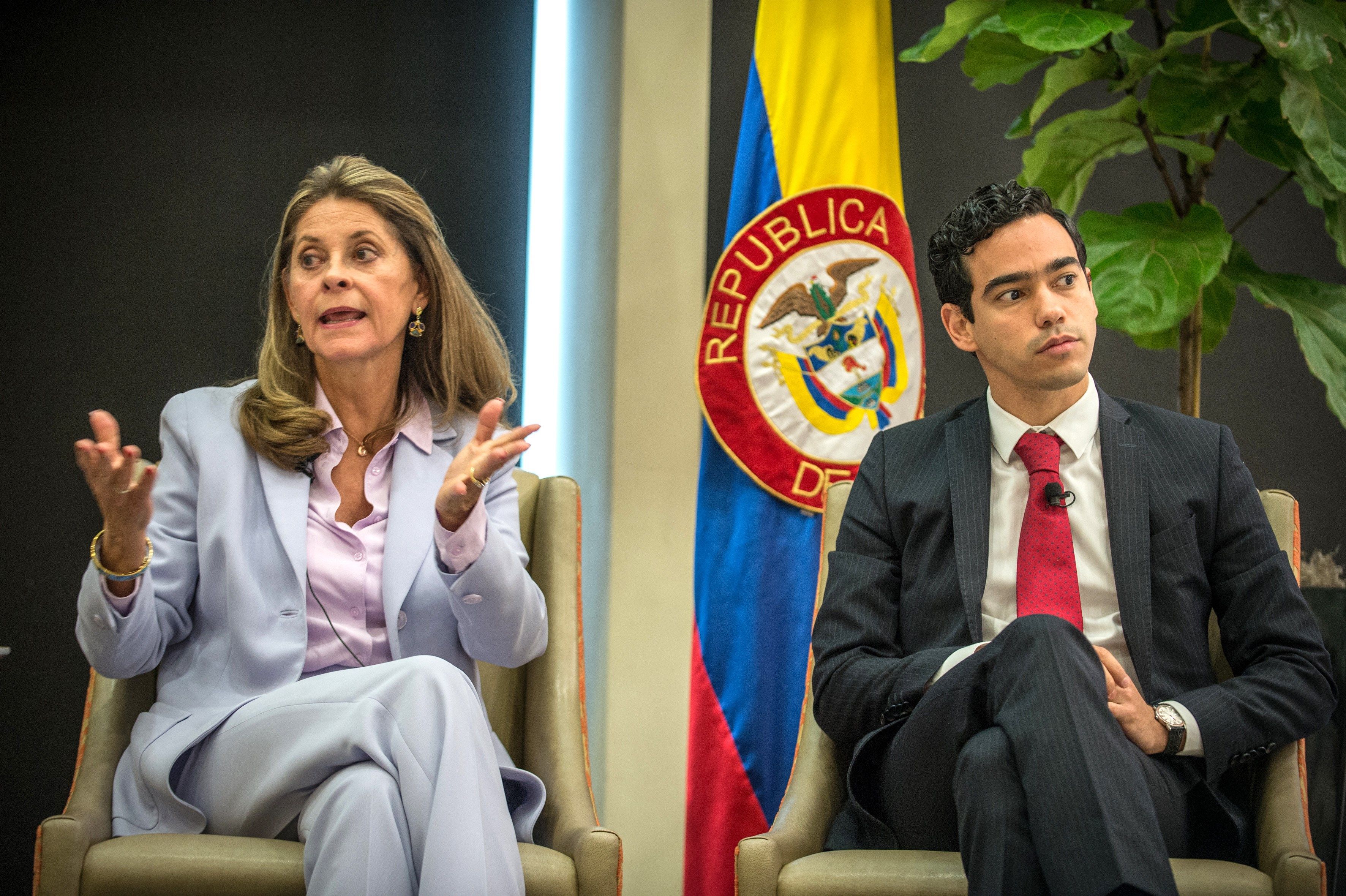
Colombian V.P. stresses regional responsibility for Venezuela
Colombian Vice President Marta Lucia Ramirez said Tuesday in Miami that "the entire hemisphere" bears responsibility for "the dictatorship that was installed in Venezuela" and, therefore, the task of addressing the "humanitarian tragedy" there must be undertaken by everyone.
Ramirez talked with reporters before speaking at a conference - The New Government of Colombia: Challenges and Opportunities - organized by The Miami Herald and headed by columnist and author Andres Oppenheimer.
The vice president stressed that Colombia has amply demonstrated its generosity with Venezuelans fleeing their country, but she added that the situation is a regional problem that must be dealt with using "regional strategies."
In her opinion, the funds that are pouring in to help those Venezuelans are completely insufficient and all countries and multilateral organizations must contribute to an emergency fund.
For Ramirez, all the countries in the hemisphere bear responsibility for the situation in Venezuela.
CONTENIDO RELACIONADO
She stressed that Colombia cannot continue to accept many more Venezuelans - there are about 1 million in the country already - and said that just as when someone jumps into the sea to help another person "they can both end up drowning."
In response to the claim of a World Bank official who spoke at the conference that the massive migration of Venezuelans can also be seen as an opportunity for the countries who welcome them, Ramirez stressed that that was indeed the situation during the "initial stage," when people with resources and education emigrated.
Now, however, the people who are leaving the country are the ones in precarious economic conditions, Ramirez said.
"The best situation would be Venezuela's return to democracy" and it must be "the commitment of everyone to exert pressure" and achieve that, she said.
According to UN figures, 3 million Venezuelans have left their country to escape the worsening economic, political and social crisis, and of this number, 2.4 million are in Latin American countries.










DEJE UN COMENTARIO:
¡Únete a la discusión! Deja un comentario.